What Is the First Step Toward Getting Treatment for Alcohol Addiction?

Understanding the Fundamental Steps in Seeking Treatment
Alcohol addiction, also known as alcohol use disorder (AUD), is a prevalent issue affecting millions worldwide. The journey toward recovery begins with acknowledging the problem and seeking appropriate treatment. This article delves into the critical first steps involved in getting treatment for alcohol addiction, providing insights and guidance for those at the start of their recovery journey.
Acknowledging the Problem: The First Step
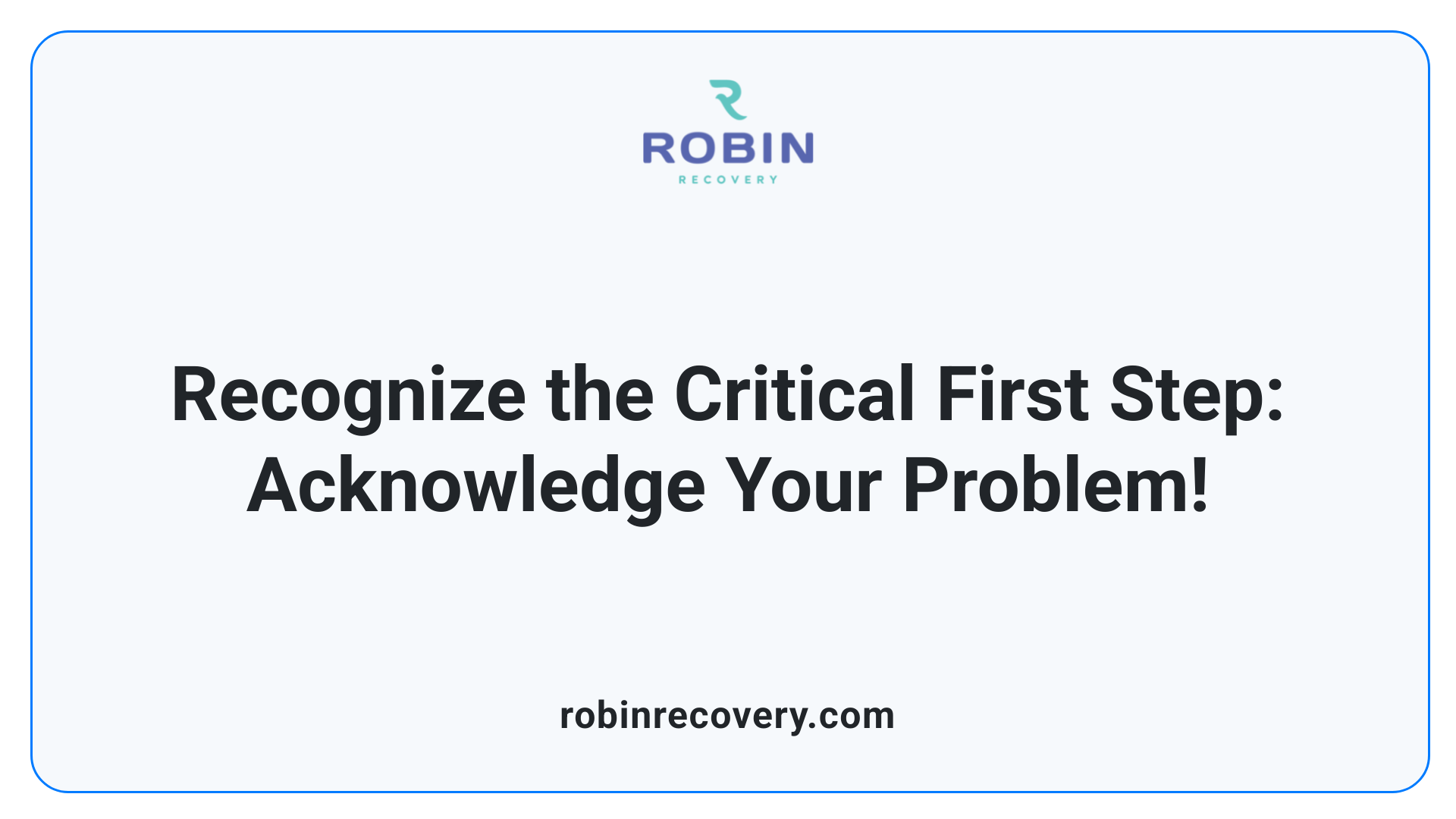
What is the first step toward getting treatment for alcohol addiction?
The journey to recovery from alcohol addiction begins with acknowledging that a problem exists. This vital first step involves recognizing when drinking behavior is becoming problematic and confronting any denial that may obscure the truth of one's situation.
For many, this recognition comes with overwhelming feelings of shame, guilt, and fear, making it difficult to admit that help is necessary. However, understanding the profound impact that alcohol has on various aspects of life, including physical health, mental well-being, and relationships, is crucial.
Recognizing Denial and the Impact on Life
Many individuals may notice early signs indicating they need help, such as:
- Loss of control over their drinking
- Prioritizing alcohol over responsibilities and relationships
- Experiencing withdrawal symptoms when not drinking
- Continuing to drink despite negative consequences
Acknowledging these issues marks an important turning point. It sets the stage for seeking professional assistance from addiction counselors or primary care providers. These professionals can evaluate drinking patterns, help formulate a tailored treatment plan, and refer individuals to suitable programs, whether inpatient or outpatient.
This recognition often prompts individuals to confront their feelings and consider the next steps toward recovery, which can change their lives for the better.
Seeking Support for the Journey Ahead
Involving family and friends in the process can further enhance the chances of successful recovery. By building a support network, individuals can navigate the challenges of recovery with emotional and practical backing. Overall, acknowledging the existence of alcohol addiction is the foundational step toward a healthier, alcohol-free life.
The Critical Role of Detoxification
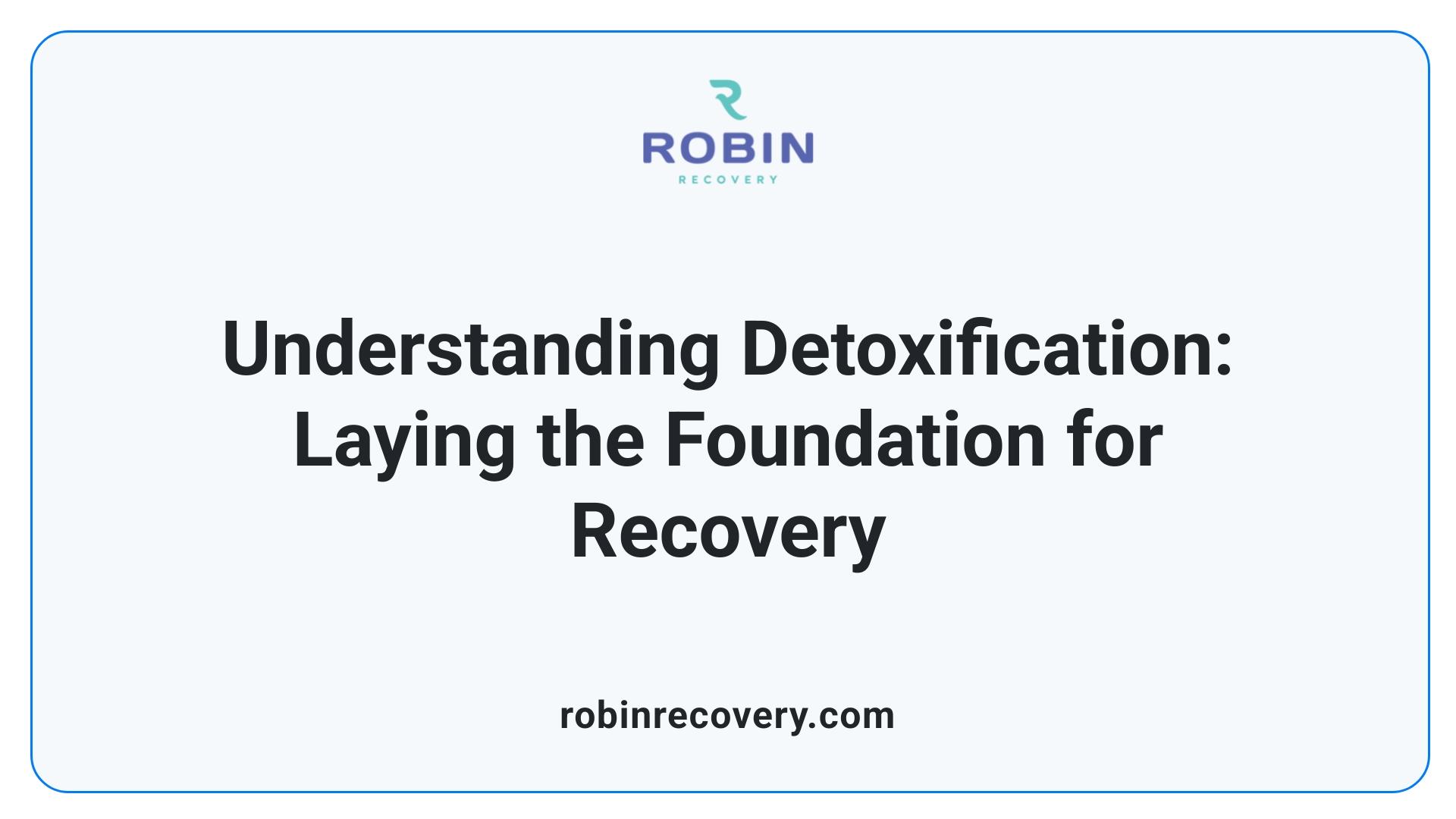
How important is detoxification in the treatment of alcohol addiction?
Detoxification is a pivotal first step in the treatment of alcohol addiction. It allows individuals to safely withdraw from alcohol under medical supervision, which is particularly important in severe cases where withdrawal symptoms can become dangerous.
The detox process generally involves two main components: the elimination of alcohol from the body and the management of withdrawal symptoms. Common withdrawal symptoms can include anxiety, nausea, and in extreme situations, seizures. This range of symptoms underlines the necessity of professional supervision during detoxification to ensure safety and comfort.
Through a medically supervised detox program, individuals can address their physical dependence on alcohol. It marks the beginning of the healing journey, providing a clean slate upon which further treatment can unfold. Following detoxification, participants typically engage in comprehensive treatment options, including therapy, support groups, and developing coping mechanisms to address the psychological aspects of addiction.
Ultimately, detoxification lays the essential groundwork for long-term sobriety. Patients who have successfully navigated this initial step often find themselves better equipped to embrace recovery and pursue a healthier life.
Aspect Description Impact Detoxification Importance Safe withdrawal from alcohol with medical support Reduces withdrawal risks Withdrawal Symptom Management Oversight of physical symptoms during detox Enhances comfort and safety Foundation for Treatment Commences the recovery process with clarity Prepares for therapeutic interventions Long-term Sobriety Sets the path for sustainable recovery efforts Supports healthier lifestyle choices
Stages of Change in Addiction Treatment
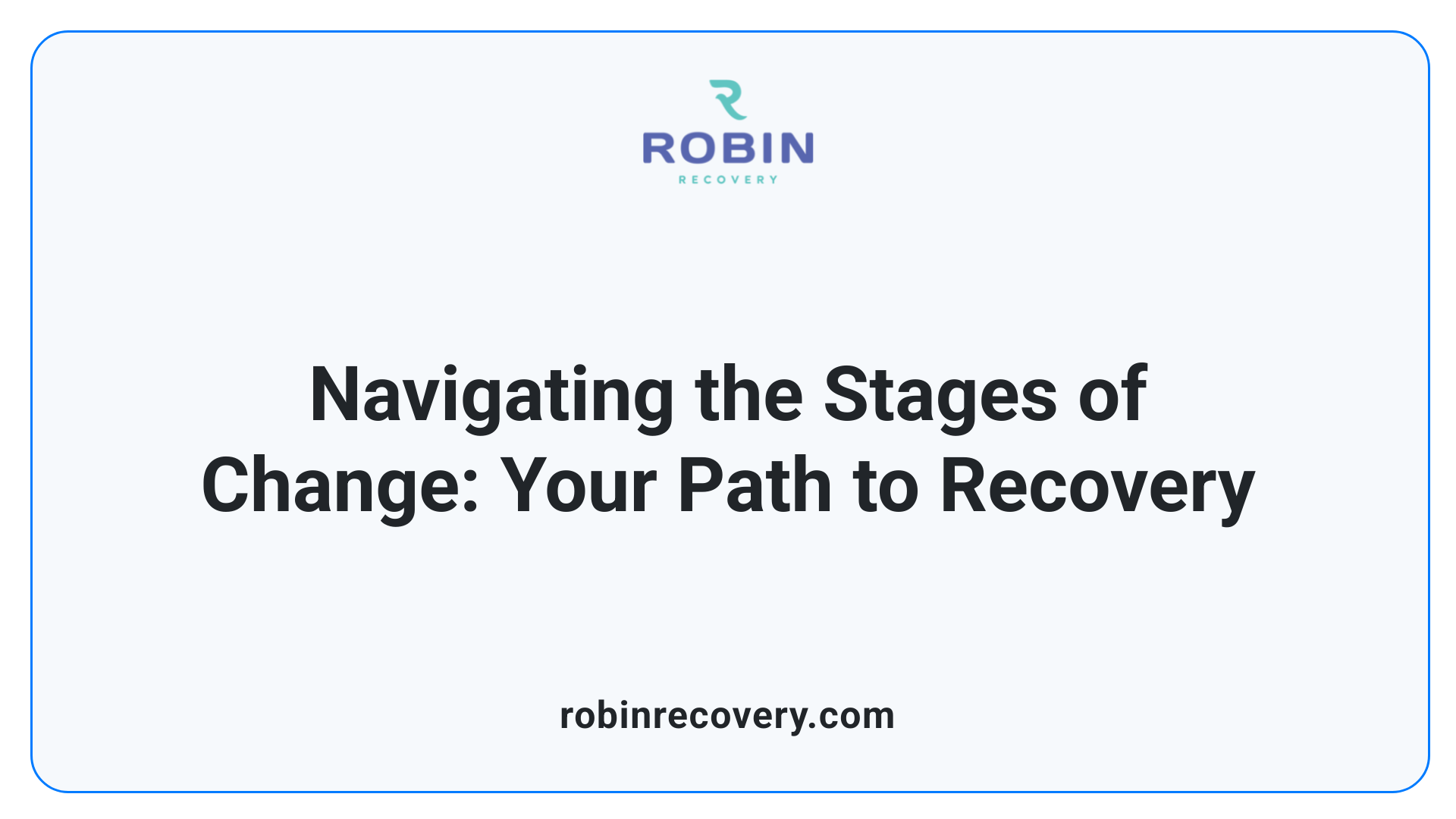
What is the initial stage of change in addiction treatment?
The initial stage of change in addiction treatment encompasses several phases, including precontemplation, contemplation, preparation, or early action. At this early juncture, individuals often experience emotional fragility, alongside ambivalence about their drinking habits. This emotional complexity can make committing to sobriety particularly challenging.
During this period, cognitive impairments may surface, highlighting the need for tailored therapeutic strategies that engage clients in recognizing their substance use problems. It's essential for treatment in this stage to focus on fostering self-awareness and resilience.
Emotional challenges during the initial stages
Understanding the interplay between substance abuse and emotional well-being is critical. Many individuals may perceive substance use as a coping mechanism for difficulties in forging emotional connections, which is often described as an attachment disorder. As such, therapy must address both the clients' immediate emotional hurdles and their broader relationship dynamics.
Effective treatment aims to create secure emotional attachments, helping clients develop healthier coping strategies. This holistic approach can significantly enhance the likelihood of successful engagement in the recovery journey, ultimately guiding individuals toward a more sustained commitment to sobriety.
Stage of Change Key Features Focus of Treatment Precontemplation Unawareness or denial of the problem Raising awareness of addiction's impact Contemplation Awareness of the issue, but ambivalence towards change Motivational interviewing to enhance readiness Preparation Planning for change and seeking help Developing a tailored treatment plan Early Action Initial steps toward change Building coping skills and emotional support
Understanding these stages can empower individuals to navigate their recovery journey more effectively.
Planning an Effective Intervention
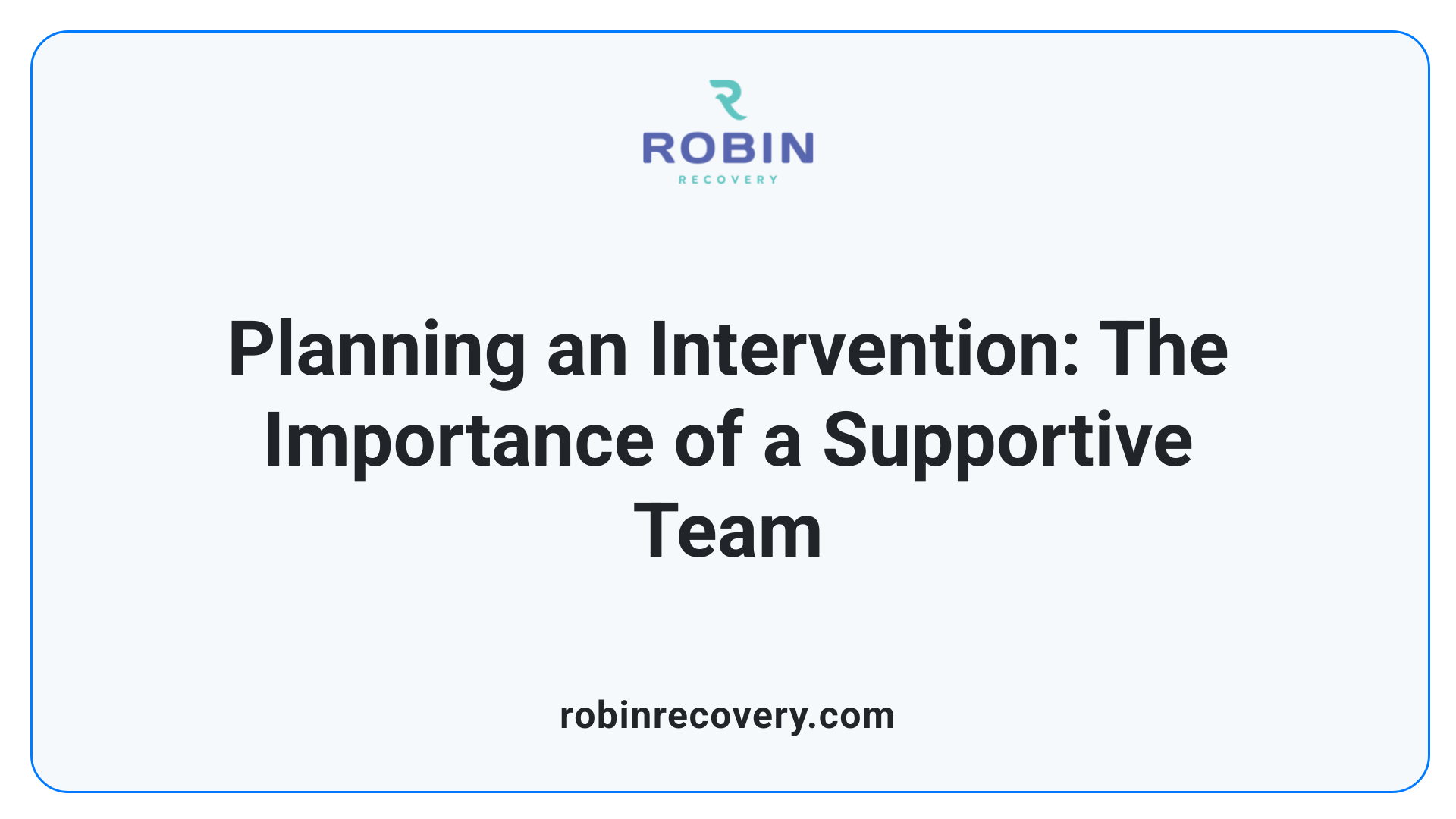
What is a crucial first step in an intervention for alcohol addiction?
A crucial first step in an intervention for alcohol addiction is gathering a supportive team of family and friends who are committed to helping the individual. This group should collectively plan the intervention and ideally engage the guidance of a professional interventionist. An interventionist can provide valuable expertise and structure to ensure the process is effective and compassionate.
Each team member plays a vital role in expressing personal concerns through written statements. These statements should highlight both the negative impact of the individual’s drinking and the positive aspects of recovery. This approach helps create an atmosphere of love and support, rather than blame.
How to involve professional guidance?
Incorporating professional guidance into the intervention planning is essential. A trained interventionist can help the group rehearse what will be said during the meeting, ensuring that every member feels confident and unified in their approach. This preparation is important, as it enhances the chances that the individual will be receptive to the message.
Additionally, reaching out to resources like SAMHSA’s National Helpline can provide further assistance in coordinating treatment options and addressing any immediate concerns related to the intervention. With a caring and structured plan, the intervention can lead the individual toward recognizing their need for help and moving toward recovery.
Key Steps in Planning an Intervention Description Supporting Resources Gather a support team Include family and friends who care about the individual Professional interventionist assistance Write impact statements Personalize concerns and positive recovery potential SAMHSA’s National Helpline Rehearse together Prepare everyone for the intervention approach Therapy resources for emotional support
Overcoming Emotional Barriers to Treatment
Guilt and Shame
Emotional barriers such as guilt and shame often plot a complicated path on the journey toward recovery from alcohol addiction. Individuals frequently grapple with feelings of regret about past behaviors, which can make it challenging to confront their addiction openly. These emotions can lead to increased denial, complicating one’s ability to recognize the need for help.
It's vital for those in this position to understand that experiencing guilt and shame is a common part of the recovery process. This acknowledgment is the first step in moving past these feelings. Supportive family and friends play a crucial role in alleviating some of this burden, helping individuals replace negative self-talk with a more positive narrative that fosters acceptance and a willingness to seek help.
Denial and Acceptance
Denial is another significant emotional barrier that can hinder progress. Many individuals may subconsciously convince themselves that their drinking isn’t an issue—often attributing problems to external factors instead. Recognizing and addressing denial is essential for moving toward acceptance.
Acceptance allows individuals to confront the reality of their drinking and its adverse effects on their lives. Questions to reflect on might include: "How has alcohol affected my relationships?" or "Am I prioritizing drinking over my responsibilities?" Facing these truths is crucial for initiating the treatment journey.
Understanding that asking for help signifies strength, not weakness, is vital. Seeking support can bridge the gap between denial and acceptance, ultimately paving the way for effective recovery.
Building a Support Network for Recovery
Role of Family and Friends
Support from family and friends is pivotal in the journey to recovery from alcohol addiction. They can offer emotional support, encouragement, and accountability, acting as a safety net during challenging times. Family members can directly intervene when they notice signs of relapse and motivate their loved ones to seek help if they haven't yet done so.
Involving family in recovery can also help repair relationships that may have been damaged due to alcohol abuse, fostering an environment that supports recovery efforts. Their understanding and patience can significantly lessen the feelings of isolation and shame often felt by those struggling with addiction.
Support Groups
Support groups play an essential role in the recovery process, providing a community of individuals who understand the challenges of overcoming alcohol addiction. Organizations like Alcoholics Anonymous (AA) offer platforms where members share their experiences, struggles, and successes. This communal aspect reinforces the understanding that individuals are not alone in their fight against addiction.
In addition to sharing experiences, support groups often involve structured programs that help participants develop coping strategies and resilience. Engaging in these groups can also provide valuable insights regarding the recovery journey, complementing the professional treatment plans individuals may be following.
Consulting Healthcare Providers as a First Step
Role of Primary Care Providers
When facing alcohol addiction, consulting a primary care provider (PCP) is a vital initial step. These professionals are often the first point of contact for individuals seeking help. They can assess the severity of alcohol use disorder (AUD) and discuss drinking patterns without judgment.
Evaluation and Treatment Planning
A PCP can perform an early evaluation, which may include:
- Assessment of Drinking Habits: Understanding frequency and quantity consumed.
- Medical History Review: Looking into any past health issues related to alcohol.
- Mental Health Evaluation: Addressing potential co-occurring disorders.
Based on this evaluation, the provider can develop a personalized treatment plan. This may involve referrals to specialists, recommendations for behavioral therapies, or medication support. Engaging with a healthcare provider early not only establishes a treatment pathway but also reinforces the commitment to recovery, paving the way for further steps in the journey toward sobriety.
Understanding Early Signs of Alcohol Use Disorder
Symptoms of AUD
Recognizing the symptoms of Alcohol Use Disorder (AUD) is crucial. Common indicators include:
- Loss of Control: Inability to limit drinking, resulting in excessive consumption.
- Withdrawal Symptoms: Physical and emotional symptoms such as anxiety, nausea, or even seizures when not drinking.
- Prioritization of Alcohol: Putting drinking before work, family, or other responsibilities.
- Continued Use Despite Consequences: Drinking even when it leads to health issues or relationship problems.
Recognizing the Need for Help
It can be challenging to admit needing help. Individuals might experience guilt, shame, or denial, which hinders the recognition of their drinking problem. However, acknowledging a problematic relationship with alcohol is the essential first step.Self-reflection, examining the impact of alcohol on one's life, and seeking guidance from trusted healthcare professionals or support groups can facilitate this recognition. Having family or friends to encourage this process can also be invaluable.
Exploring Treatment Options
What are the available treatment options for alcohol use disorder?
Treatment for Alcohol Use Disorder (AUD) can be tailored to each individual, addressing their specific needs. The two primary categories of treatment include behavioral therapies and medication support.
Behavioral treatments
Behavioral therapies focus on modifying harmful drinking behaviors and strengthening coping skills. Common approaches include:
- Cognitive Behavioral Therapy (CBT): This helps individuals recognize and change negative thought patterns associated with drinking.
- Motivational Interviewing: Enhances personal motivation to change drinking behaviors.
- Family Therapy: Involves family members to address dynamics affecting addiction.
Medications and support groups
Several medications can assist in managing withdrawal symptoms or reducing cravings. Popular options include:
- Naltrexone: Helps diminish the urge to drink.
- Acamprosate: Supports recovery by balancing brain chemistry.
- Disulfiram: Creates unpleasant reactions to alcohol, deterring its use.
Support groups, like Alcoholics Anonymous (AA), play an essential role in recovery by providing community and accountability. Engaging in these therapeutic approaches fosters a robust support system, setting the foundation for long-term sobriety.
Maintaining Long-Term Sobriety
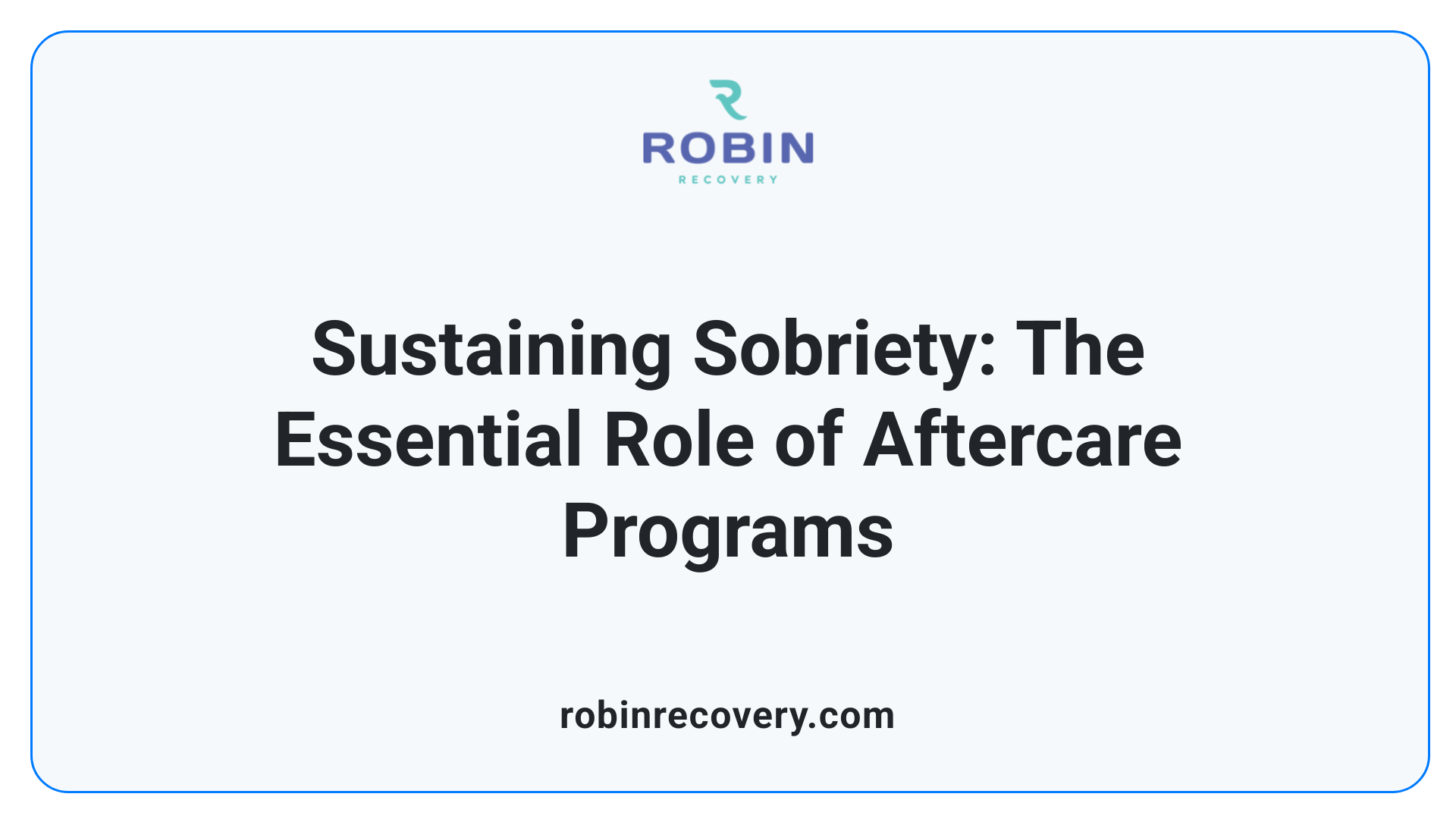
Aftercare Programs
Aftercare programs play a crucial role in sustaining sobriety after completing initial treatment for alcohol addiction. These programs offer a structured environment where individuals can continue their recovery journey. They often include group meetings, individual counseling, and workshops designed to reinforce coping strategies, helping participants navigate the challenges that may arise after rehab.
Ongoing Support and Follow-Up
Ongoing support from healthcare providers, support groups, and family can significantly impact an individual's success in maintaining sobriety. Regular follow-ups with addiction specialists ensure that any potential issues are addressed promptly. Additionally, support groups such as Alcoholics Anonymous (AA) provide a community of understanding and encouragement, helping individuals feel less isolated as they work toward long-term recovery.
Embarking on the Path to Sobriety
Acknowledging an alcohol addiction is a challenging but pivotal step towards recovery. By understanding the importance of recognition, detoxification, emotional support, and professional guidance, individuals can embark on their healing journey. The path to sobriety might be fraught with challenges, but with the right resources and support, a healthier and fulfilling life is within reach.
References
- What is The First Step Toward Getting Treatment for Alcohol ...
- What is the First Step Toward Getting Treatment for Alcohol Addiction?
- Alcohol Addiction Treatment: Taking The First Step
- What is the first step towards getting treatment for alcohol addiction?
- Treatment for Alcohol Problems: Finding and Getting Help
- What Is The First Step Toward Getting Treatment For Alcohol ...
- Alcohol Use Disorder: What It Is, Symptoms & Treatment
- Guide to Alcohol Addiction and Treatment at McLean Hospital
- Treatment for Alcohol Addiction: A Guide - Alcohol Help
